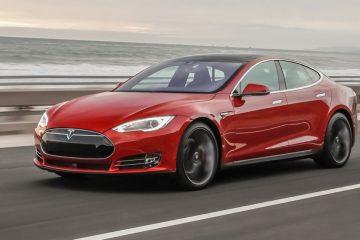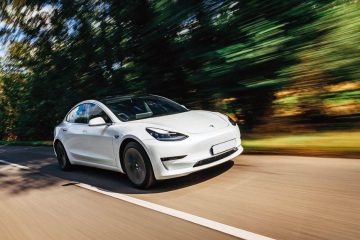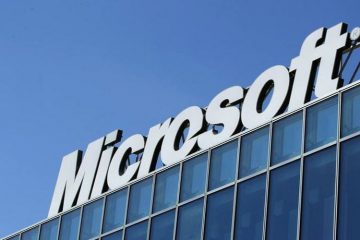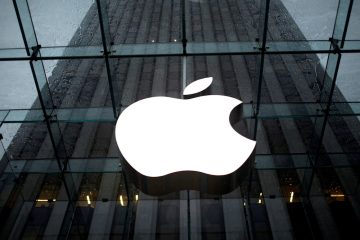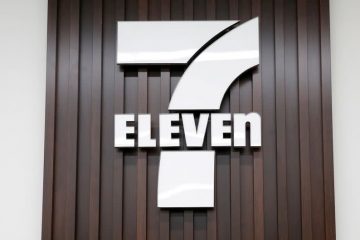Tesla pay fight and Elon Musk

Tesla’s ongoing battle over employee compensation has been making headlines, with much attention focused on the company’s CEO, Elon Musk.
Elon Musk is known for his adherence to agreements, although there may be exceptions. The Tesla chief executive and his supporters, including investors and Chair Robyn Denholm, are making a final push to convince shareholders before Thursday’s vote to reauthorize his 2018 pay package. Their argument can be summarized as: We made an agreement and we should stick to it!
It presents a persuasive defense, at least in terms of rhetoric, but it is also the type of argument that Musk has consistently dismissed in his own business interactions with others.
For years, Musk, one of the wealthiest individuals globally, has faced allegations that his companies were not fulfilling their financial obligations to employees. Musk and his companies have consistently denied any wrongdoing. However, he is experiencing the consequences of his actions as he becomes part of the group that shares a similar sense of being mistreated.
The status of his compensation is uncertain following a decision by a Delaware court to revoke it earlier this year. The court had concerns about the process through which the package of stock options, currently worth approximately $46 billion, was negotiated. The Tesla board is considering a second shareholder vote in order to bring clarity to the situation and potentially prevent a protracted legal dispute.
“Fairness and respect dictate that we uphold the mutual agreement we made to Elon,” Denholm stated in a recent communication to shareholders. She emphasized the importance of honoring our agreement.
During a recent appearance on CNBC, billionaire investor Ron Baron presented a compelling argument. “We made it clear to Elon that if he delivered results, this is what he would receive,” stated Baron, who believes his investments in the company have generated billions of dollars. How can one possibly backtrack on such a decision, particularly when it had unanimous approval from both the directors and shareholders? It’s absolutely mind-boggling.
Investor Cathie Wood shared her perspective on X, questioning how shareholders could backtrack on his pay package after Elon and shareholders had already navigated the risks involved in Tesla’s journey to becoming the world’s best-selling car manufacturer. Unbelievable!
Following Marcie Frost’s statement, the CEO of Calpers, the influential California Public Employees’ Retirement System, expressed their intention to oppose the pay package due to its lack of alignment with the company’s performance. In response, Musk claimed that Calpers had violated the agreement. It is disappointing to see their lack of integrity.
While Musk is advocating for his financial gain, he is also facing opposition from others who are seeking their own compensation.
Several Twitter employees felt aggrieved by Musk’s actions following his acquisition of the social-media platform in 2022, resulting in its subsequent rebranding as X. He desperately attempted to back out of the purchase once it became evident that his $44 billion offer was excessive due to a decline in social-media advertising.
Then-Twitter Chief Executive Parag Agrawal and his team effectively advocated for Musk to honor the deal, resulting in significant benefits for their shareholders, albeit at Musk’s cost.
Shortly after the acquisition was finalized, Musk made the decision to terminate the senior Twitter leaders. This action resulted in them losing the severance payments they were promised, which were meant to incentivize them to continue working during this challenging transition. In the book “Elon Musk” by biographer Walter Isaacson, the billionaire mentioned that he made the decision to reduce them in order to avoid a difference of 200 million.
In March, Agrawal and the team filed a lawsuit against Musk over the matter and reiterated other allegations that his company is neglecting its financial obligations.
“Under Musk’s control,” the lawsuit began, “Twitter has become a company that neglects its obligations, failing to pay employees, landlords, vendors, and others. Musk fails to fulfill his financial obligations, holds the belief that he is exempt from rules, and leverages his wealth and influence to assert dominance over those who hold differing opinions.
Musk has denied any wrongdoing, asserting that he terminated them for justifiable reasons.
His track record on such matters is intricate. Earlier this year, Musk emphasized the importance of reliability for Tesla. His remarks came after a Silicon Valley bakery raised concerns about Tesla failing to pay for a large order of 4,000 pies that were abruptly canceled.
Wow, this is news to me. “I will improve the situation with the bakery,” Musk tweeted. It is important for individuals to have confidence in Tesla’s commitment to giving their utmost effort.
From the inception of Tesla, Musk and the electric-vehicle manufacturer have faced inquiries regarding the treatment of their employees in relation to the timing of their dismissals prior to the vesting of their stock.
Tesla vigorously defended itself against a lawsuit filed by over 40 former employees over a decade ago, asserting its innocence. Eventually, a California appeals court reversed the ruling made against Tesla in that case.
In 2009, a notable conflict arose when Tesla co-founder Martin Eberhard filed a lawsuit following his contentious departure. The dispute involved allegations of denied stock options that Eberhard believed he was entitled to. Tesla denied any wrongdoing and claimed that Eberhard had violated a nondisparagement agreement. The parties ultimately reached a settlement that solidified Musk’s status as a co-founder of the automaker.
Recently, Tesla experienced the departure of an important executive, Jerome Guillen, who played a crucial role in guiding the company during challenging periods, such as the difficult production ramp up of the Model 3 sedan.
The eventual success of the Model 3 allowed Musk to accomplish the objectives of his 2018 pay package, which involved reaching milestones related to revenue growth and market values that were considered unlikely by some observers.
Executives, including Guillen, who held the position of president at the time, received their own substantial rewards, although they were smaller in comparison to those given to Musk, for their contributions.
In 2021, Guillen left Tesla following an offer for a new position that was perceived as a downgrade. Musk also requested that he give up a portion of his unvested shares, which were worth hundreds of millions of dollars, according to The Wall Street Journal. It was an uncommon request that arose amidst a larger concern expressed by Musk regarding certain employees’ salaries exceeding what he believed they should earn.
Now, Musk finds himself in a battle against those who argue that he is seeking compensation beyond what he merits.
“The total award value is still too high, despite the company’s success,” stated Institutional Shareholder Services, a prominent proxy advisory firm, in its recommendation against the plan to investors.
Tesla had a different perspective, stating in a well-known reply: “A deal is a deal.”

